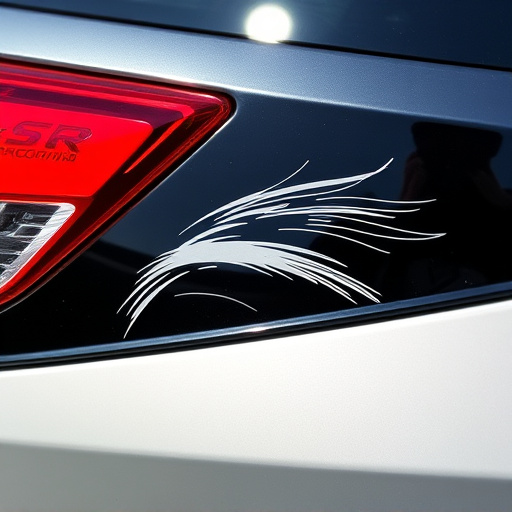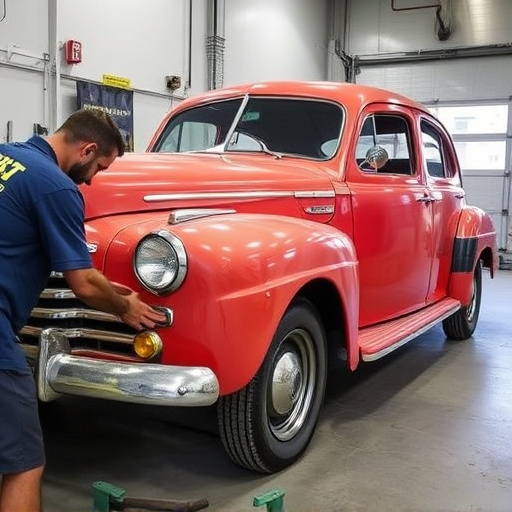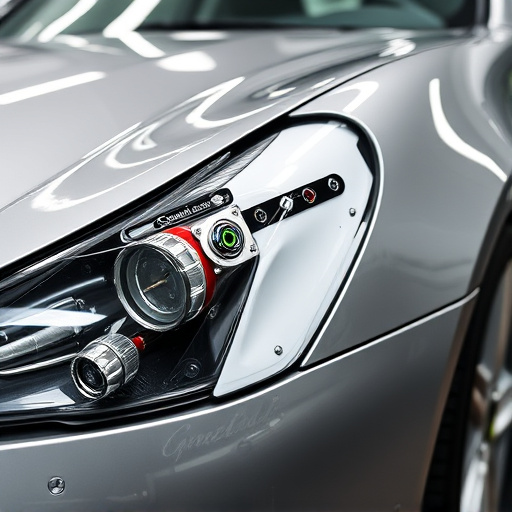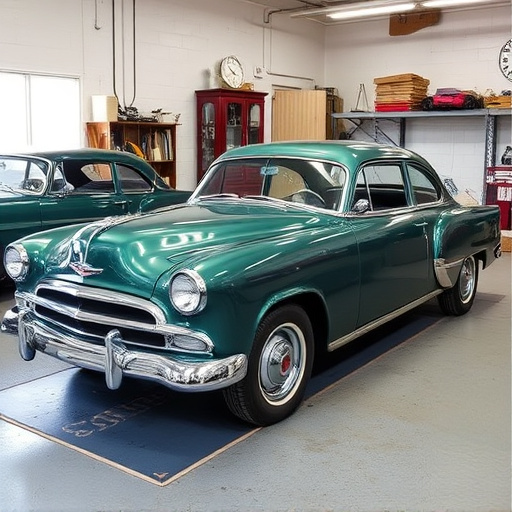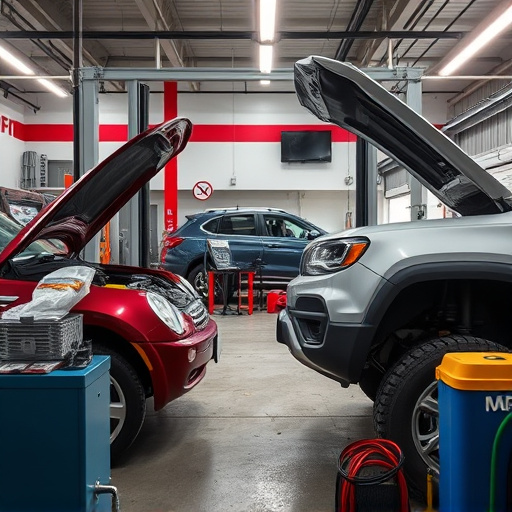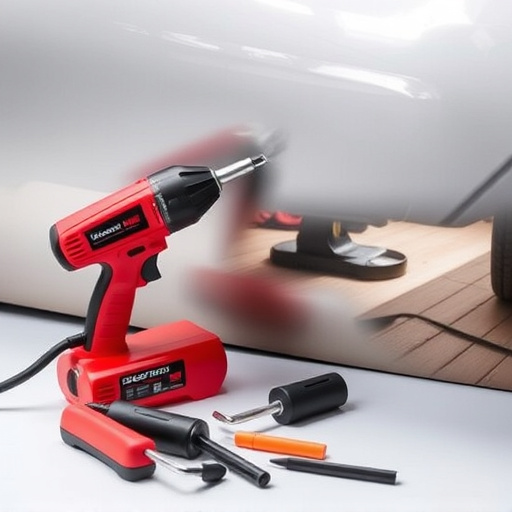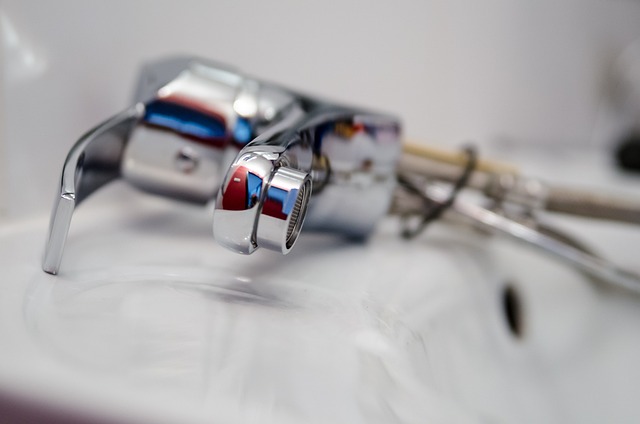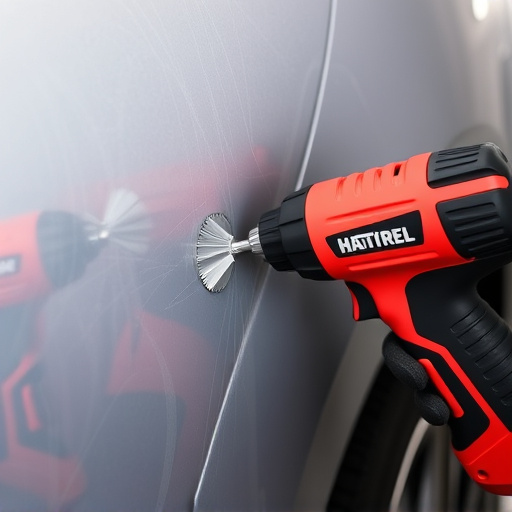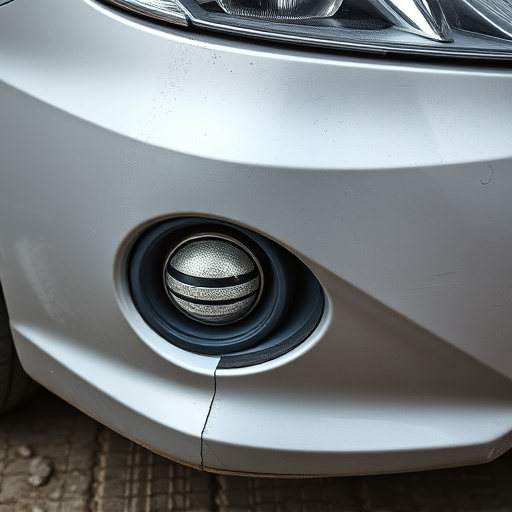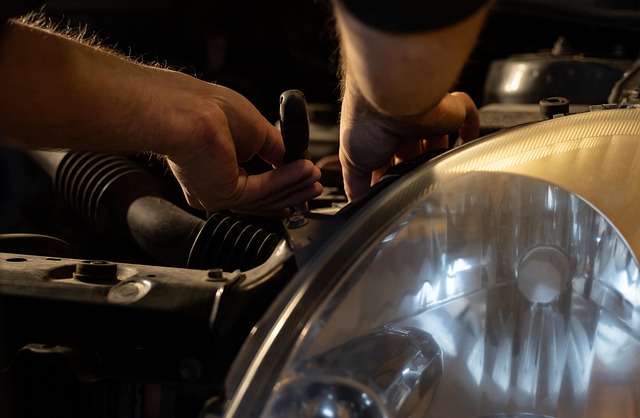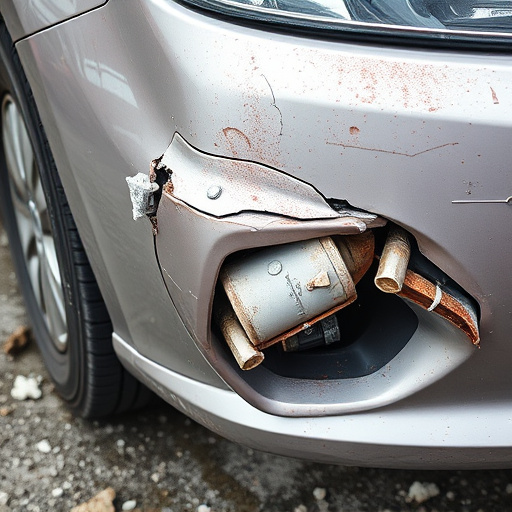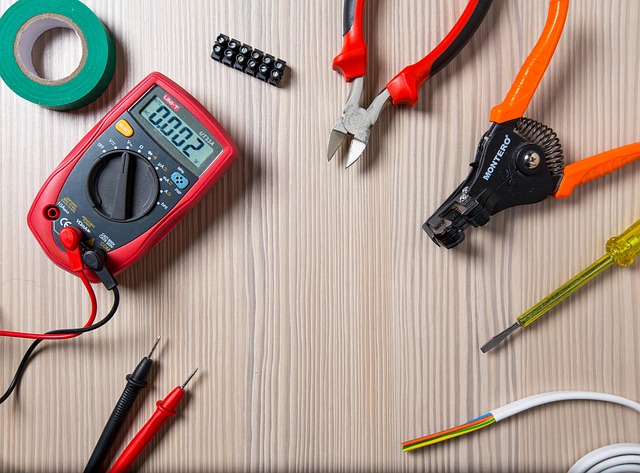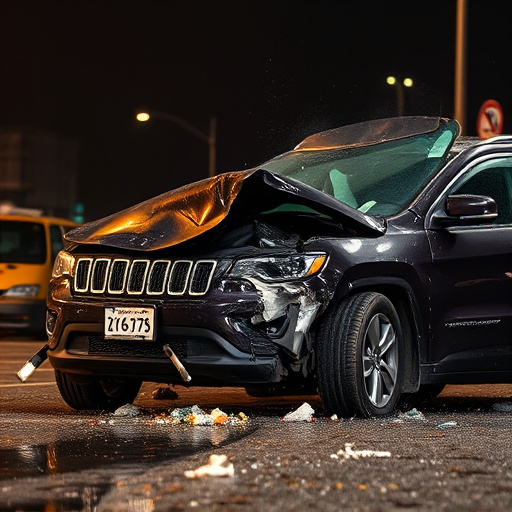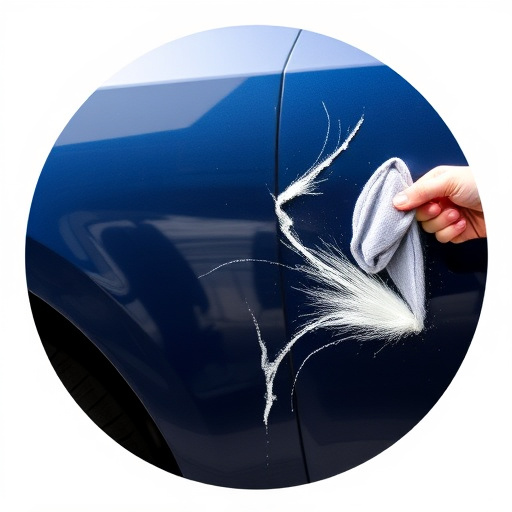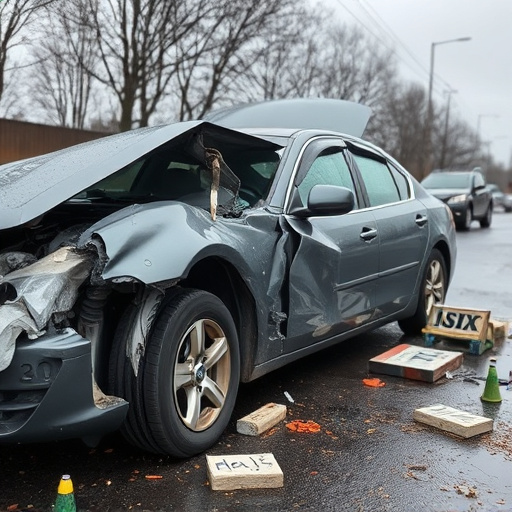Mercedes impact sensor calibration is vital for vehicle safety, ensuring sensors accurately detect and measure collision severity. Regular maintenance, especially post-accidents or auto body repairs, is crucial to prevent deviations in sensor integrity. Specialized body shop services use calibrated tools to validate readings, providing reliable data for emergency situations, and facilitating precise repairs through real-time diagnostic analysis.
Mercedes impact sensors play a crucial role in active safety systems, detecting collisions and triggering responses. Proper calibration ensures their reliability and accuracy. This article delves into the significance of Mercedes impact sensor calibration, using live diagnostic readings as a validation method. We explore how this process enhances sensitivity and accuracy, enabling optimal performance in real-world scenarios. By understanding and maintaining these sensors, vehicle safety is significantly improved.
- Understanding Mercedes Impact Sensor Calibration
- Validating Sensitivity and Accuracy With Diagnostic Tools
- Real-World Applications: Live Readings Analysis
Understanding Mercedes Impact Sensor Calibration

Mercedes impact sensor calibration is a critical process that ensures the vehicle’s safety systems function optimally. These sensors play a vital role in detecting and measuring the severity of collisions, triggering appropriate airbags and other protective mechanisms. Accurate calibration guarantees that the sensor data aligns with real-world conditions, enhancing passenger safety.
Proper calibration involves adjusting and testing the sensors to ensure they respond accurately to various impact scenarios. This process is particularly essential for luxury vehicles like Mercedes, known for their advanced safety features. Regular maintenance and calibration of these sensors are crucial, especially after accidents or when vehicle paint services or auto body services have been performed, as even minor repairs might affect sensor integrity. Body shop services specializing in such calibrations use specialized tools to validate readings, ensuring the system remains reliable and ready to protect occupants in case of an emergency.
Validating Sensitivity and Accuracy With Diagnostic Tools

Validating the sensitivity and accuracy of Mercedes impact sensor calibration is a critical step in ensuring proper vehicle safety and performance. Advanced diagnostic tools play a pivotal role in this process, allowing technicians to meticulously test each sensor’s response under various conditions. These tools provide real-time data, enabling them to assess not just the sensor’s ability to detect impacts but also its precision in reporting force and location.
Through live diagnostic readings, mechanics can identify any deviations or inconsistencies in the impact sensor’s performance. This meticulous validation process is essential for fleet repair services and autobody repairs, where maintaining high standards of safety and quality is paramount. By confirming the sensor’s reliability, auto repair services can guarantee that vehicles are equipped with state-of-the-art safety mechanisms, ready to respond optimally in real-world scenarios.
Real-World Applications: Live Readings Analysis

In real-world applications, analyzing live diagnostic readings from Mercedes impact sensors offers invaluable insights for vehicle collision repair and classic car restoration experts. By directly monitoring sensor data during and after a collision, technicians can precisely gauge the extent of damage to various components within the vehicle’s structure. This enables them to make informed decisions about replacement parts, repair procedures, and overall safety standards.
For instance, live readings from impact sensors installed in the vehicle bodywork can reveal critical information about panel deformation, frame integrity, and potential hidden damages that may not be immediately apparent during visual inspections. This data is crucial for ensuring that every aspect of a vehicle collision repair is executed with precision, enhancing both structural integrity and passenger safety. Whether working on modern vehicles or engaging in classic car restoration projects, accurate Mercedes impact sensor calibration and real-time data analysis are indispensable tools for achieving optimal results.
Mercedes impact sensor calibration is a critical aspect of vehicle safety, ensuring accurate data collection during accidents. Through live diagnostic readings, we’ve validated the sensitivity and accuracy of these sensors, showcasing their pivotal role in real-world applications. By understanding and maintaining proper calibration, Mercedes-Benz vehicles can provide reliable data, enhancing collision response and passenger safety.
